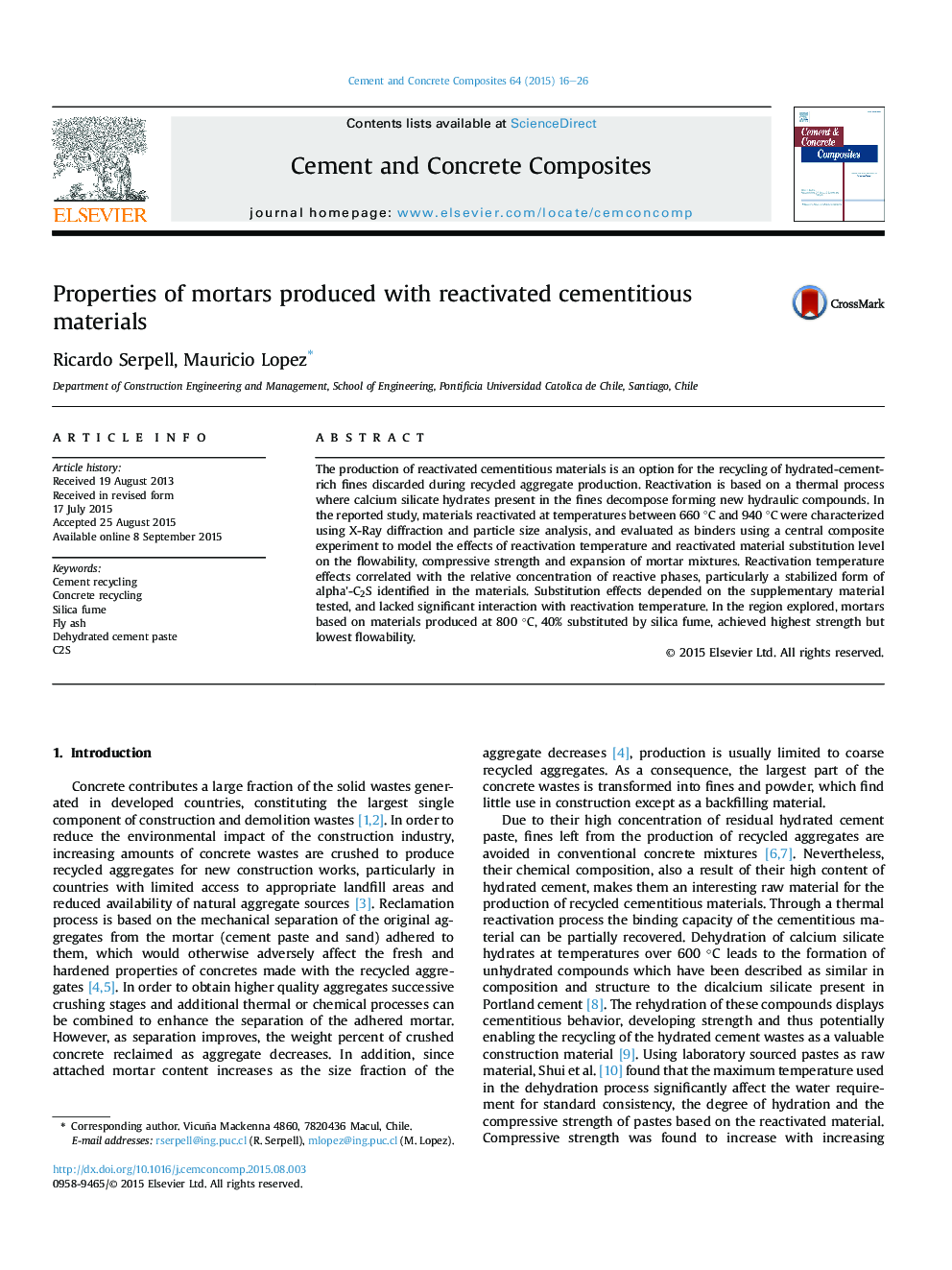| Article ID | Journal | Published Year | Pages | File Type |
|---|---|---|---|---|
| 1454439 | Cement and Concrete Composites | 2015 | 11 Pages |
The production of reactivated cementitious materials is an option for the recycling of hydrated-cement-rich fines discarded during recycled aggregate production. Reactivation is based on a thermal process where calcium silicate hydrates present in the fines decompose forming new hydraulic compounds. In the reported study, materials reactivated at temperatures between 660 °C and 940 °C were characterized using X-Ray diffraction and particle size analysis, and evaluated as binders using a central composite experiment to model the effects of reactivation temperature and reactivated material substitution level on the flowability, compressive strength and expansion of mortar mixtures. Reactivation temperature effects correlated with the relative concentration of reactive phases, particularly a stabilized form of alpha'-C2S identified in the materials. Substitution effects depended on the supplementary material tested, and lacked significant interaction with reactivation temperature. In the region explored, mortars based on materials produced at 800 °C, 40% substituted by silica fume, achieved highest strength but lowest flowability.
